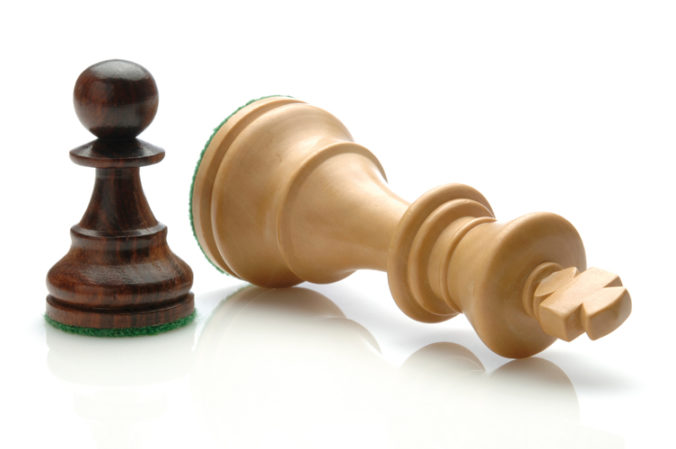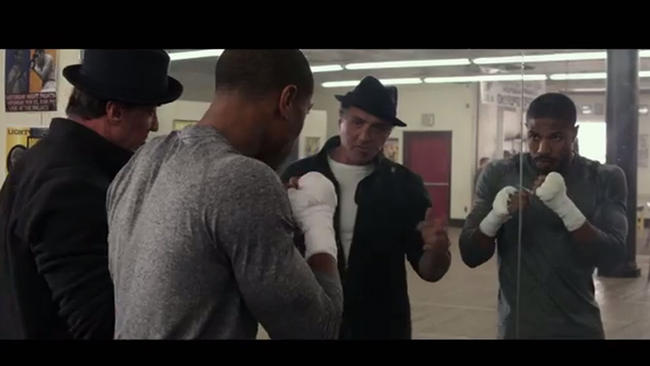“There are two primary choices in life: to accept conditions as they exist, or accept the responsibility for changing them.” — Denis Waitley
I know this is a long post. Thank you for reading it in its entirety.
Let’s begin at the beginning.
I was diagnosed with Type II Bipolar Disorder 14 years ago at the Western Psychiatric Institute and Clinic of UPMC. This was probably a diagnosis that should have been discovered long before the point of the nervous breakdown that put me in there. There have been inciting incidents, before and since, that have caused emotional reactions within me, and it has taken me years to develop the tools to properly manage my behavior in light of those reactions. The intensity of the emotions has not changed, but as I continue to work on myself for myself, these tools become more refined, more precise, and I handle these things better.
One of the ways in which these tools can be forged is through Dialectical Behavioral Therapy (DBT). A DBT instructor’s manual on emotions defines them in the following ways:
“Emotions are complex; they consist of several parts of different reactions happening at the same time.
“Emotions are automatic: they are involuntary, automatic responses to internal and external events.
“Emotions can not be changed directly; we can change the events that cause emotional experiences; but not the emotional experiences directly. We can’t make ourself ‘feel’ a particular emotion and then feel it. Willpower won’t stop an emotional experience no matter how desperately we might want it to.”
The sequence in which synapses fire within our brains is not within our direct control. We cannot choose to not feel something. The emotions are not something we can stop or merely turn off. We have to handle them. We can avoid them with distractions, which is not advisable. We can cope with them through various mechanisms, some of which are healthier than others. Hardest of all is to try and reason with them. It is an entirely internal process. We must apply facts and evidence to a situation in comparison to the emotions being felt by that situation in an attempt to choose the best and healthiest way to handle and express those emotions.
For a person with a mental illness, going through the process of reasoning with emotions is far more difficult than it is for someone who is neurotypical. And this is not a temporary condition. It’s not like breaking one’s leg, then needing to learn how to walk on it again. This is more along the lines of a physical chronic illness, where walking in and of itself can be challenging due to the nature of one’s body.
It is unreasonable to say to a person with such an illness, “Just get up and walk! It’s so easy, why can’t you just do it! Your inability to consistently walk is holding me back/making me feel bad, and that’s your fault.”
It is just as unreasonable to say to a person with mental illness, “Just stop feeling these things! I don’t, so why do you? Your inability to handle your emotions the way I do is making me feel bad, and that’s your fault.”
These are things I have been forced to learn, wrestle with, and draw conclusions from since that breakdown 14 years ago. The steps have been incremental, sometimes frustratingly small, and some have fallen on unstable ground. There have been times when it has been difficult to take these steps and use these tools entirely on my own. Others can help, be they therapists or family or friends. But, in the end, no other individual can or should be expected to do it for me.
Within the last few months I have found myself gainfully employed after a long period of searching for work that falls within a marketable and well-documented skillset I possess. My list of published and referencable writing is rather small, while my experience with web development operations and programming is better at filling out a résumé. It is with the latter that I secured employment. After over a year of not having something with this rate of pay, this sort of work environment, and this sort of support and direction, the stress caused by not being an “earner” in a post-capitalist society was removed. My significant lack of an inability to recognize self-worth, however, remained, and in the space of that removed stress, that neural pathway found new room in which to exist. It amplified, causing emotions and reactions that proved very difficult to handle.
As I said, distracting ourselves from our emotions is inadvisable. I distracted myself by spending a great deal of time not engaged with my personal space or my partner, instead choosing to be elsewhere. This was pointed out to me by them and, at first, I denied the cause. Subsequent discussions, sometimes highly emotional ones, helped me realize what I was doing. As a result, I chose to take a step back from major in-person social interactions to focus on handling this underlying problem in a more healthy and comprehensive way.
Part of that process was writing a post about that sense of self-worth, and how much I want to believe in myself, now more than ever. Writing is, and has been, my primary way of expressing myself and exploring these spaces. Rather than do so in a story, I chose to write about my real emotions and experiences, and I chose to post it publicly. I made that choice for posterity, and to provide insight into my emotions and behavior. I thought it might be useful to and for those who are in my life, and who have watched me go through these moments of emotionality that have a negative impact upon them. Others can see or even feel the effects of what my emotions do to me; they cannot always see the cause.
I have been told “it hurts me to watch you put yourself through this, to beat yourself up.” I believe that. I’ve experienced that, as well. My partner, who has chronic illnesses, cannot always do the things they wish to do. To watch them struggle against the constraints of their bodily pain, to hear them express disappointment in themselves for not being able to do what they want, is painful to me.
At no point do I hold my partner’s illness against them. They can’t simply not be sick. It’s not their fault. It’s unfair, unreasonable, even cruel and abusive, to make them feel responsible for my feelings regarding their disability.
By the same token, it is unfair, unreasonable, even cruel and abusive, to make someone with mental illness feel responsible for another person’s feelings regarding that illness.
If something said or done directly to another person causes harm, the person who said or did the thing is responsible for that. And it does not have to be direct physical or even emotional harm, either. A manipulative turn of phrase — “if you love me, you’ll do X” — is the responsibility of the person who says it, because it is delivering an ultimatum to the person in question. Words have meanings; it is through language that we communicate what we feel, what we intend, who we are.
So when I write at length about an internal process regarding handling my self-worth, or as above regarding the nature of my mental illness, and no language is employed that makes these things the responsibility of others, to have others claim that I am making them responsible for these things or that this language is somehow problematic or abusive is absolutely baffling to me. As a person with a mental illness, I am using that terminology and language to expand upon and explore my condition. Again, I am making the choice to write this for posterity and to allow insight into my internal thoughts, emotions, and processes. That is the purpose of this writing. Nothing more.
These emotions of mine — complex, automatic, immutable — are simply that: mine. They are entirely internal. Disregarding their influence on my life, it does not impact other people when I feel something. When I feel a question or lack of self-worth, for example, that is an entirely internal process. No person outside of myself is responsible for it, nor is it my desire to somehow make it another person’s fault. That would be unfair. That would be manipulative. That would be bullshit.
When someone else, on the other hand, questions my self-worth, or validity, or integrity, that is another matter entirely.
I’ve read over my posts, this one and the previous one in this vein, several times. Others have as well. At no point in either do I directly say that a person or group of people outside of myself is somehow responsible for my feelings or my actions. These things come from a place within my self, and from no other source. These things are amorphous, difficult, and even painful. The last thing on this planet I would ever want to do is put them onto someone else. I would rather not deal with them; why make someone else do it? That is, as above, unfair, unreasonable, and even cruel and abusive.
We cannot choose when and how we feel things. We can, however, choose how to handle those feelings. And when we take action to handle a feeling, we can choose to take responsibility for those actions, or we can choose to make someone else responsible for it. We can own, or we can project. We can accept, or we can blame.
We get to choose that.
I do not agree with all of the choices I have made in the past, but I accept those are the choices I made. Some of my choices have caused me pain or loss; that, too, is my responsibility. Others have made, and will make, choices to make me responsible for things that are not mine. Those choices will attempt to manipulate me into taking responsibility for those things. In the past, my lack of self-worth and my desire to do good for and please the people around me put me in a position to simply accept what I was given, despite its absurdity or toxicity. It is a weakness of mine that has been exploited time and time again.
I cannot accept this. I will accept this no longer.
Just as how I get to choose how I handle my feelings, I get to choose who I am and who I want to be.
I am a person with bipolar disorder. And I choose to not be a pawn of my emotions, nor of anyone else’s.








